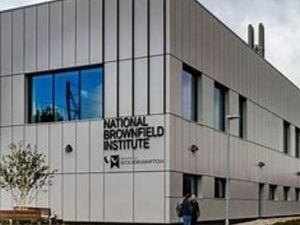Growing economy is key to residents’ wellbeing, says report
Economy bosses in Wolverhampton have drawn up a detailed plan of action designed to build on the city’s multi-million-pound business achievements over the last decade.

The council’s Good Growth strategy – which will be presented to council leaders next week – highlights a range of city-wide development and investment successes over the last 10 years, including the award-winning £1 billion i54 business park.
Also noting the groundbreaking low-carbon research work being done at Wolverhampton University’s new National Brownfield Institute at the Springfield Campus, the strategy outlines ways in which the local authority aims to grow beneficial economic opportunities for everyone in the city.
In a report to the council’s Economy and Growth Scrutiny Panel, the city’s Head of Policy and Strategy Laura Collings said: “Skills levels across the city have risen steadily over the last five years, and 89 per cent of our city’s schools are rated good or outstanding by Ofsted above the national and regional average.
“We are delivering first-class learning facilities with a seamless learner offer through the City Learning Quarter. There are growing sectors in digital, creative industries and professional services bringing new jobs as well as established clusters in advanced manufacturing and aerospace.
“Thousands of fantastic employment opportunities exist in health and social care, hospitality, retail and logistics which provide vital services to local people. We want all businesses, residents, families and communities to benefit from this growth and all the new opportunities in our city.
“What this strategy does is sets out a new vision for economic growth in Wolverhampton – a vision which is focused on delivering good growth. It explains the main focus of our work and actions we aim to deliver that can propel the city’s economic prospects – as well as, fundamentally, the life chances and wellbeing of our residents,” she added.
“The city, like many post-industrial places, faces long-term social and economic challenges. We believe our industrial heritage is an asset to our economy, but it has left a legacy of brownfield sites that present redevelopment challenges.
“We now face a growing challenge to support our residents and businesses to decarbonise our economy and make our city net carbon neutral by 2041. The success of this strategy ultimately relies on delivering not just good growth, but good green growth.”
A formal consultation process on the strategy will be held between December and January next year, which will include input from focus groups and workshops with residents, partners and businesses. The council’s Economy and Growth Scrutiny Panel will discuss the plans next Wednesday.





